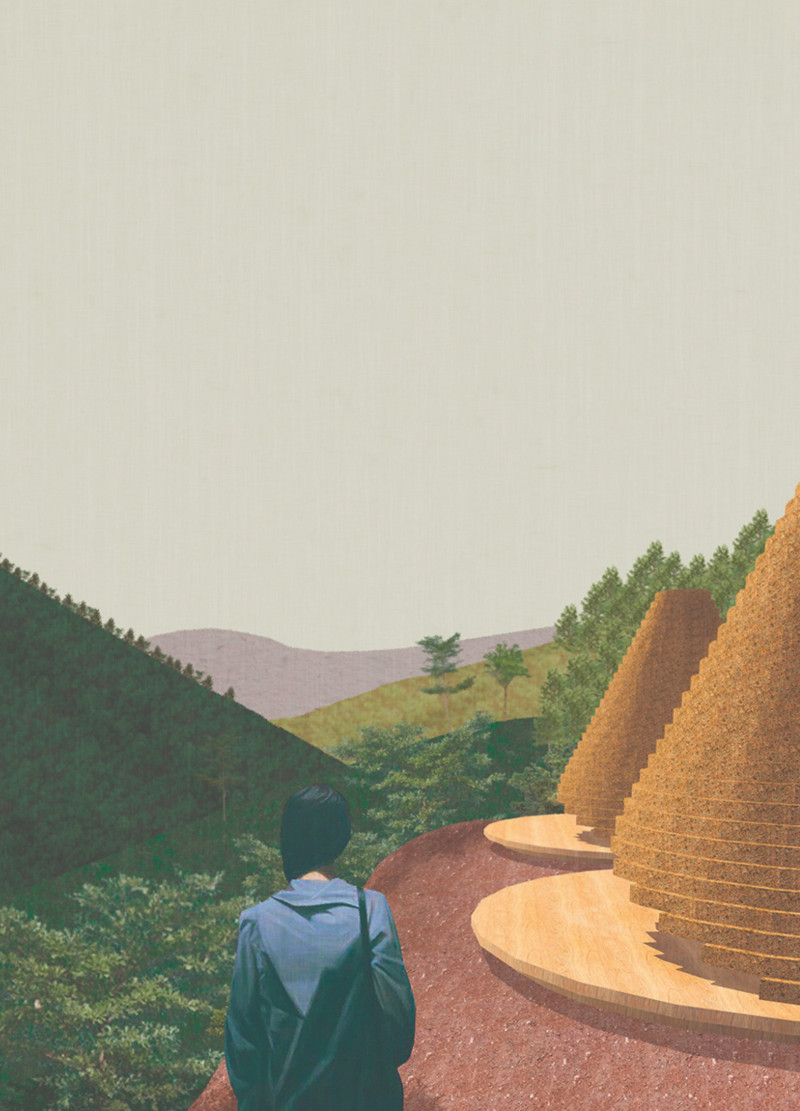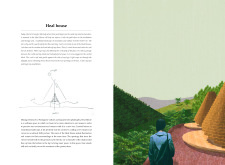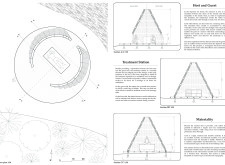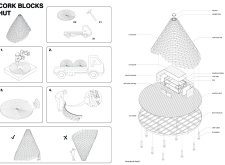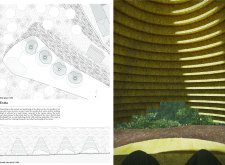5 key facts about this project
The Heal House is a wellness retreat set in a region surrounded by mountains and valleys. Its design promotes a calming atmosphere suitable for quiet reflection and thoughtful engagement with nature. The space is inspired by Portuguese culture and Japanese Zen philosophy, focusing on mindfulness and self-awareness. By offering areas for various therapeutic practices, it aligns with modern ideas of wellness and personal care.
Spatial Organization
The layout of Heal House is designed to create a gentle transition from the bustling outside world to a tranquil interior. Visitors first encounter a low entrance that requires them to crouch, which invites a deeper sense of contemplation. Inside, the central Treatment Station serves various purposes, defining space for both hosts and guests. This arrangement supports activities like meditation and bodywork, allowing the environment to adapt to different needs.
Material Application
Cork serves as the main material in Heal House. Its use enhances the comfort of the interior, offering warmth and acoustic benefits. This natural material provides effective insulation and contributes to the overall cozy feeling of the space. Additionally, cork is environmentally friendly, being compostable and reducing the building's ecological footprint, which is essential for a retreat that champions wellness.
Sustainable Features
Sustainability is an integral part of the design. A grey water recovery system efficiently collects water from handwashing activities, filtering it through natural elements before directing it to a pond. This innovative system not only conserves water but also nourishes the surrounding garden, illustrating a practical approach to ecological responsibility.
Sunlight filters through skylights, creating patterns and shadows that shift throughout the day. This dynamic quality encourages individuals to remain connected with their environment during moments of meditation and reflection. The thoughtful interplay of light and space enhances the overall experience, reinforcing a strong connection to the natural setting.


